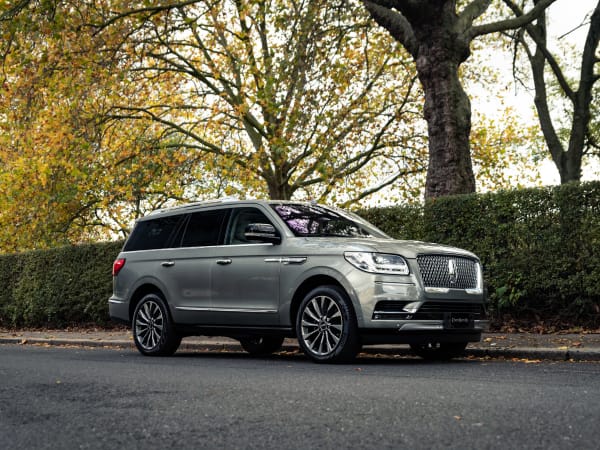Let’s face it, buying a car is everyone’s dream, we all have our dream car we’ve been saving up for. It doesn’t matter what part of the world you live in, before buying a car there are always a ton of expenses to look out for. Some of these expenses often elude us like think it through, are you really ready for a car?
In the UK, the major means of transportation are cars (or taxis), coaches, trains, Eurostars, cycles, and underground networks. In this article, we’ll consider one of the means of transportation in the UK and some expenses to consider before buying a car.
Expenses to consider when buying a car in the UK
It was estimated that about 25.7 million people have a car in the UK, and the statistics are still on the increase today. There’s a prestige that comes with owning a car. You get to travel to new places, move properties, and get to work easily without the stress of waiting for a taxi.
Despite the numerous benefits of owning a car, fixing a damaged car can be draining and frustrating. This is why you need to consider a lot of costs when managing a car in the UK and take the required steps to avoid a sudden breakdown of your car upon usage.
Also read- 7 Ultimate Time-Saving Tips For Working Dads
The purchase cost
The first and most vital expense to check when purchasing a car is the cost of the car itself.
You can either buy a car all at once or in instalments, following an interest rate. According to a Nerdwallet survey, owning a car in the UK costs around £3,406.80 (or £5,744.40 if you use car finance).
Another consideration is your income. If you are an average salary earner, you can opt for cheaper cars with a low insurance cost, but if you earn a high salary, you can go for car models with good insurance premiums.
You can opt for a fuel-efficient car, a petrol car, a diesel car, or even an electric car, depending on your income.
If you’ve bought a car, congratulations to you. This is just the first expense of owning a car.
Car Taxes
Car tax, otherwise named Vehicle Excise Duty or Road Tax, is an important tax to pay for every car in the UK. There’s an exception for cars registered as being off-road via a Statutory Off Road Notification (SORN).
There are cars which you don’t pay tax for, like cars which do not emit any carbon dioxide per kilometre and are worth £40,000. Also, cars that were registered from 1st March 2001 to 1st April 2017 emit 100g of carbon dioxide per kilometre.
Another exemption is for those with disabilities. Cars registered after the stipulated dates and exceeding the cost above have a car tax that varies between £10 and £2,175 in the first year after registration.
A year after registration, hybrid car owners pay £140 car tax while petrol or diesel car owners pay £150.
These taxes depend on the engine size, emissions of carbon dioxide, or car registration. Diesel car owners who exceed the Real Driving Emissions 2 (RDE2) for emissions of nitrogen oxide pay higher taxes.
These are things you should consider before signing the car document of your choice.
Service and maintenance costs
After three years of registration, a vehicle goes through an MOT test to check its state. This test is performed once a year and costs a maximum of £54.85 per vehicle.
This ensures that the car is roadworthy. This is why drivers do some repairs, like changing brake pads or some other work. These centers, where they conduct these MOT tests, carry out these repairs, and cost at least £143.
For servicing of cars, UK citizens try to keep up-to-date servicing records so as to make the most of sales when they’re ready to sell their car. Basic servicing of cars costs around £125, or more if there are cases of repair.
This is why you should opt for newer cars as they have some years of warranty and this reduces the rate of servicing for some time, unlike older cars.
Also, how you handle your car affects the value of your car. Every asset is sure to depreciate, but it depends on how you handle them. A car may start wearing out just three years after its purchase. This is why you should consider the mileage factor, car model, and service factor.
Depreciation can reduce the value at which you wish to resell your car. This is the reason you should take the required steps to maintain the car’s value. Follow the recommended method to maintain your car as directed by the manufacturer and also limit your mileage.
Also Read- 7 Ultimate Time Saving Tips For Working Moms
Fuel costs
Every car needs fuel, except electric cars. If you don’t use an electric car yet, then it’s necessary that you have a budget for fueling your car.
The expense of fueling your car is an important one that you can’t avoid. The price of fuel fluctuates with the rate of inflation. It was recorded that drivers of petrol cars spend as much as £1,042 a year on fuel.
The mileage you cover annually is a huge determinant of your fuel expenses. The minimum mileage to cover to avoid high fuel expenses annually is estimated to be 6,600 for petrol cars and 9,400 for diesel cars.
Another way to bring down fuel expenses is to go for cars with better fuel economy. Older cars don’t have enough fuel economy like newer car models. It’s up to you to either go for a newer car model and save money or go for an older one and spend more on fuel.
It’s necessary to record your fuel costs per month. Monthly fuel costs are calculated as ((fuel cost per L X L per gallon) X (annual mileage/Miles Per Gallon))/12.
Also, diesel cars are better for covering long mileage and saving fuel than petrol cars.
Unforeseen occurrences like penalties, accidents, etc.
There will be times when you are either in a car accident or failure to follow road safety rules. Those times can be draining financially.
In accident cases in the UK, a driver with no insurance coverage pays an amount of £415 to the other party who has insurance cover. The insurance premium increased by 9%.
Speeding is basically the major offense drivers commit, and they attract a particular fine. Over speeding, dangerous driving, etc., these offenses attract a £100 penalty fine and add three points to the driver’s license. Any point in your license increases the cost of your insurance premium upon renewal.
Another offense is parking at the wrong place, especially when you visit expensive places like airports, beaches, and inner cities. The fine is at least £38. Parking fines are very expensive, as the UK government realizes £2.5 million yearly.
Conclusion
As we said in the beginning, there comes a time in most people’s life, you just need a car for limitless reasons. It’s not an easy thing owning and maintaining a car especially in the UK. You have to be mentally and financially prepared for all the ups and downs that come with owning a car. I hope this article gives you more clarity on your choice.








